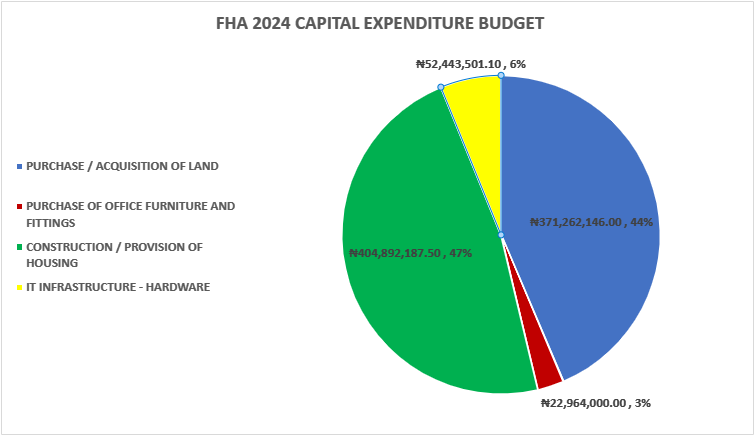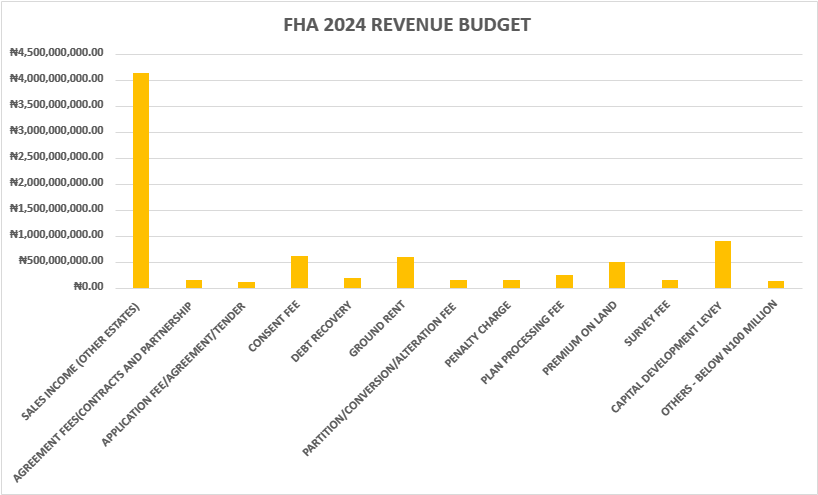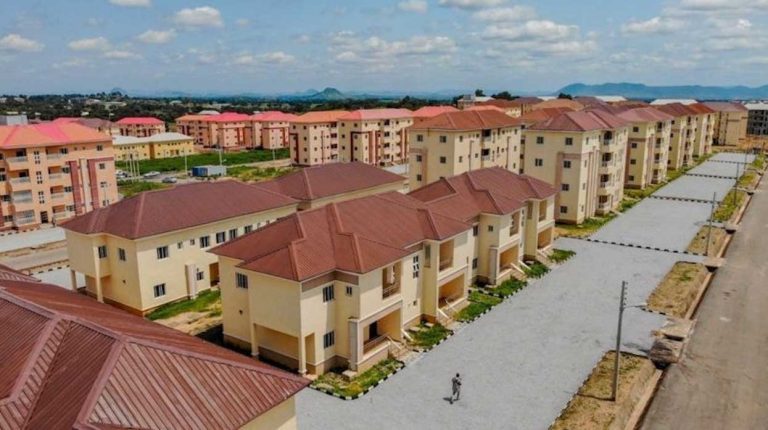The Federal Housing Authority (FHA) plans to spend about N776.15 million on land acquisition and building of homes. That is roughly 19.8% of its 2024 finances of N3.94 billion.
Additionally, the finances for buying land and developing homes is about 91.1% of the company’s capital expenditure (N851.56 million).
The remaining 8.9% might be spent on IT techniques (N52.44 million) and workplace tools/furnishings (N22.96 million).
Regardless of its vital position in addressing housing wants throughout earnings teams, the FHA faces a budgetary problem. A whopping 61.4% of its 2024 finances is earmarked for wage funds, amounting to N2.42 billion out of a complete expenditure of N3.94 billion.
This hefty wage invoice raises questions concerning the allocation of assets in the direction of its core mandate of housing improvement.

FHA to get N4.5 million from kiosk and purchasing centre house owners
In 2016, the company disclosed plans to ascertain a income process power to lift funds for its finances.
The company plans to generate about N4.5 million in income from rents by kiosks and purchasing centre house owners in 2024. This goal is a part of the 2024 Authorities-Owned Entities’ (GOEs) budget proposal, lately made public by the Funds Workplace of the Federation and seen by Nairametrics.
The first income driver for FHA in 2024 is projected to be earnings gross sales from estates, estimated to be N4.13 billion. This determine represents a major 51.5% of its income aim of N8.02 billion for the 12 months.
Different high income sources are capital improvement levy (N900 million), consent charge (N620 million) and floor hire (N600 million).

Extra Insights
- Established underneath the Nationwide Improvement Plan in 1973, the FHA has a longstanding dedication to driving the federal government’s housing agenda.
- In December 1992, a pivotal shift occurred for the Federal Housing Authority (FHA). A efficiency settlement involving the Authority, the Federal Authorities, and the Technical Committee on Privatization and Commercialization (TCPC), now generally known as the Bureau of Public Enterprise (BPE), redefined FHA’s position. This settlement reworked FHA into a novel entity, functioning each as a authorities company centered on housing supply and a profit-earning industrial enterprise, thereby sustaining its operations.
- The TCPC outlined a transparent mission for FHA: to develop reasonably priced housing by successfully utilizing obtainable assets according to the Nationwide Housing Coverage. The aim was to boost the residing requirements and high quality of life for Nigerians, particularly these within the low-income bracket, by the industrial and worthwhile execution of government-funded housing applications.
- Given Nigeria’s acute housing deficit of 28 million homes and the need for an estimated N21 trillion to address this shortage, the FHA’s dedication to assembly these immense housing necessities is extra vital than ever.
- Through the years, it has delivered 1000’s of housing models nationwide, overcoming quite a few challenges. Notable initiatives embody the Jubilee Property, a partnership with Nugga Greatest Regis Worldwide, marking FHA’s fiftieth anniversary with about 7000 new housing models.
- Additionally, the FHA plans to construct an additional 20,000 housing units across Nigeria’s six geo-political zones. This plan aligns with ongoing initiatives just like the Zuba Housing Property and the Sensible Metropolis/Diaspora Property in Abuja.
- Nevertheless, a regarding facet is the deteriorating condition of older FHA estates, lots of that are more and more turning into slums as a consequence of poor upkeep.


